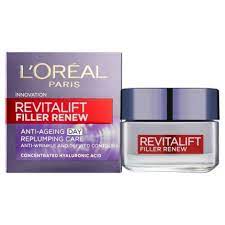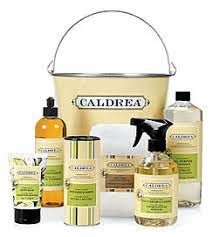
Skincare is more than just a beauty regimen; it’s a form of self-care that impacts our overall well-being. As we delve into the world of skincare, it’s crucial to understand what ingredients to avoid and how to navigate the perplexing landscape of beauty products.
I. Introduction
A. Importance of Skincare
In a fast-paced world, taking care of our skin often takes a backseat. However, understanding the significance of skincare goes beyond aesthetics. Healthy skin is a reflection of our overall health, and a well-thought-out skincare routine can contribute to our well-being.
B. Common Misconceptions About Skincare Ingredients
Before diving into the specifics, let’s debunk some common myths about skincare ingredients. Not every product on the shelf is beneficial, and some popular ingredients may do more harm than good.
II. Harsh Ingredients to Avoid
A. Alcohol-Based Products
Alcohol is a common ingredient in many skincare products, prized for its quick-drying properties. However, its harsh nature can strip the skin of essential oils, leading to dryness and irritation.
B. Synthetic Fragrances
That delightful scent in your skincare product might be hiding a slew of harmful chemicals. Synthetic fragrances can cause allergic reactions and irritation, especially for those with sensitive skin.
C. Parabens and Sulfates
These preservatives and cleansing agents are often found in skincare and beauty products. However, they have been linked to hormonal imbalances and skin irritation, emphasizing the need to scrutinize ingredient lists.
III. Impact on Healthy Skin
A. Irritation and Dryness
The aftermath of using harsh ingredients often includes redness, itching, and dry patches. Understanding the signs of irritation is crucial to maintaining healthy skin.
B. Allergic Reactions
Synthetic fragrances and certain preservatives can trigger allergic reactions, ranging from mild discomfort to severe dermatitis. Knowing your skin’s sensitivities can prevent adverse effects.
C. Long-Term Effects on Skin Health
Consistent use of harmful ingredients can lead to more profound issues, such as premature aging and compromised skin barrier function. Long-term skincare involves making choices that benefit your skin in the present and future.
IV. Alternatives for Healthy Skin
A. Natural and Organic Ingredients
Choosing products with natural and organic ingredients can be a game-changer for your skin. These ingredients often provide nourishment without the harsh side effects associated with synthetic compounds.
B. Importance of Patch Testing
To avoid surprises, patch testing new products is crucial. Applying a small amount of a product to a discreet area helps determine if your skin reacts adversely before incorporating it into your routine.
C. Consulting with Dermatologists
When in doubt, seek professional advice. Dermatologists can assess your skin’s specific needs and recommend tailored solutions for a healthier complexion.
V. Popular Skincare Myths
A. “No Pain, No Gain” Mentality
Contrary to the popular saying, skincare shouldn’t be painful. The misconception that tingling or burning sensations equate to efficacy is a dangerous belief. Effective skincare should be gentle yet impactful.
B. Higher Price Means Better Quality
Price tags don’t always correlate with product effectiveness. Some affordable products contain high-quality ingredients, while expensive ones may rely on brand image rather than ingredient quality.
C. One-Size-Fits-All Approach
Every individual’s skin is unique, and what works for one may not work for another. Tailoring your skincare routine to your skin’s specific needs is key to achieving optimal results.
VI. Tailoring Skincare to Individual Needs
A. Understanding Skin Types
Identifying your skin type is the first step to crafting an effective skincare routine. Whether you have oily, dry, or combination skin, the products you choose should cater to your skin’s unique characteristics.
B. Customizing Routines for Better Results
Generic routines may not address your skin’s specific concerns. Customizing your skincare routine by incorporating products that target your individual needs can yield more favorable outcomes.
C. Importance of Consistency
Consistency is key in skincare. Building a routine and sticking to it allows your skin to adapt to the products and ensures a steady improvement in its overall health.
VII. Burstiness in Skincare Trends
A. Rapid Changes in the Beauty Industry
The beauty industry experiences constant evolution, with new trends emerging regularly. Staying informed about these trends can be exciting, but it’s essential to distinguish between fads and genuinely effective practices.
B. The Rise of Innovative Ingredients
Innovation drives the skincare industry forward. Exploring products with novel ingredients can introduce your skin to new benefits, but caution is necessary to avoid potential risks associated with unproven components.
C. Balancing Trends and Proven Practices
While experimenting with new trends can be thrilling, it’s crucial to maintain a balance with established skincare practices. Tried-and-true ingredients and routines provide a stable foundation for healthy skin.
VIII. Addressing Perplexity in Skincare Choices
A. Overwhelm in the Skincare Market
The abundance of skincare products on the market can be overwhelming. Streamlining your choices based on your skin’s needs and avoiding impulse purchases can simplify the decision-making process.
B. Sorting Through Conflicting Information
Conflicting advice is common in the skincare realm. Fact-checking information and consulting reputable sources can help you make informed decisions about your skincare routine.
C. Establishing a Reliable Routine
Building a reliable routine involves choosing products that work for you and incorporating them into your daily life. A consistent routine promotes healthy skin and simplifies the decision-making process.
IX. The Role of Technology in Skincare
A. AI and Skincare Analysis Apps
Technology has entered the skincare space with the advent of AI-driven analysis apps. These tools provide personalized recommendations based on your skin’s specific needs.
B. Personalized Recommendations
Customization is a significant trend in skincare. Personalized recommendations take into account your skin type, concerns, and preferences, ensuring a tailored approach to skincare.
C. Ensuring Accuracy in Tech-Driven Skincare
While technology enhances our skincare experiences, it’s essential to cross-reference recommendations with professional advice. Technology can augment, but not replace, the expertise of dermatologists.
X. Engaging the Reader: Stories of Skincare Success
A. Real-Life Testimonials
Reading about others’ skincare journeys can be both informative and inspiring. Real-life testimonials connect readers emotionally to the challenges and triumphs of achieving healthy, radiant skin.
B. Journey to Finding the Right Skincare Routine
Every skincare journey is unique. Emphasizing that finding the right routine takes time and experimentation encourages readers to be patient and persistent in their pursuit of healthier skin.
C. Encouraging Readers to Share Their Stories
Creating a sense of community by encouraging readers to share their skincare stories fosters a supportive environment. Peer experiences can provide valuable insights and solidarity in the pursuit of healthy skin.
XI. Active Voice in Skincare Advocacy
A. Empowering Individuals to Make Informed Choices
Skincare is a personal journey, and individuals should feel empowered to make choices that align with their values and goals. Advocating for informed decision-making fosters a sense of control over one’s skincare routine.
B. Breaking Down Complex Skincare Language
The beauty industry often uses technical jargon that can be confusing. Breaking down complex terms and explaining them in simple language helps readers make sense of product labels and ingredient lists.
C. Encouraging Open Conversations About Skincare
Initiating open conversations about skincare normalizes discussions around skin health. Encouraging dialogue reduces stigma and promotes collective learning about effective skincare practices.
XII. Brief Guide to Skincare Ingredients
A. Common Beneficial Ingredients
Understanding common skincare ingredients empowers consumers. Highlighting beneficial components, such as hyaluronic acid, vitamin C, and retinol, provides a foundation for making informed product choices.
B. Understanding Ingredient Labels
Deciphering ingredient labels can be daunting. Offering a brief guide on how to read labels equips readers with the knowledge to identify key ingredients and potential allergens.
C. Recognizing Potential Allergens
Identifying common allergens, such as certain fragrances and preservatives, is essential for those with sensitive skin. A proactive approach to allergen recognition can prevent adverse reactions.
XIII. Rhetorical Questions: Unmasking Skincare Myths
A. Do Expensive Products Guarantee Healthy Skin?
Delving into the misconception that higher price tags equate to better skincare, we question whether expensive products truly guarantee healthier skin.
B. Can a Minimalistic Routine Be Effective?
Challenging the notion that a lengthy skincare routine is necessary, we explore whether a minimalistic approach can be equally, if not more, effective.
C. How to Decipher Marketing Claims in Skincare?
Navigating the world of marketing claims, we pose questions that prompt readers to critically evaluate product advertisements and make informed choices.
XIV. Analogies and Metaphors: Simplifying Skincare Concepts
A. Treating Skin Like a Garden
Drawing parallels between skincare and gardening, we explore how nurturing and consistent care lead to the flourishing of healthy, radiant skin.
B. Skincare Routines as a Journey
Comparing skincare routines to a journey, we emphasize that the path to healthy skin is unique for each individual, with its own challenges and triumphs.
C. Ingredients as the Building Blocks of Skincare
Using the metaphor of building blocks, we illustrate how skincare ingredients form the foundation of a robust and effective skincare routine.
XV. Conclusion
A. Recap of Essential Skincare Insights
Summarizing key takeaways, we revisit the importance of informed choices, tailored routines, and the role of technology in achieving and maintaining healthy skin.
B. Encouragement for a Mindful Skincare Approach
Concluding with a call for mindfulness, we encourage readers to approach skincare as a form of self-care, emphasizing the impact of positive choices on overall well-being.



